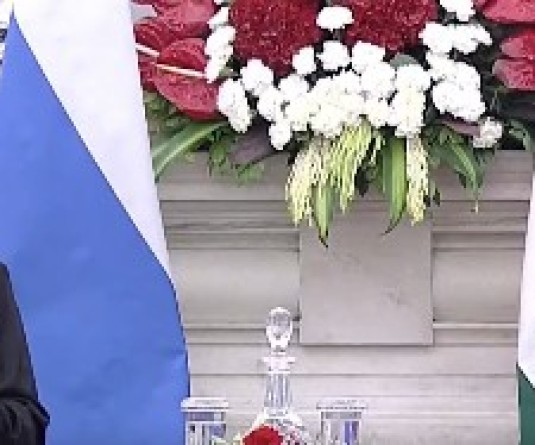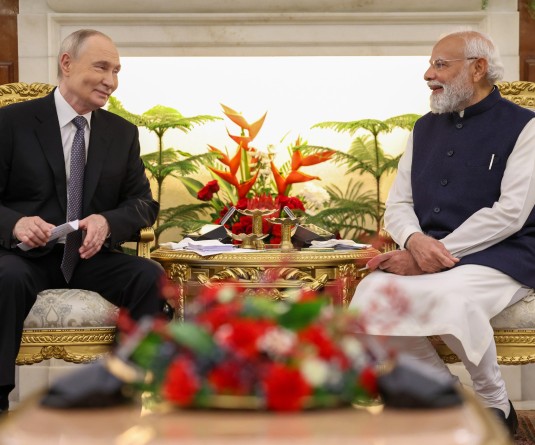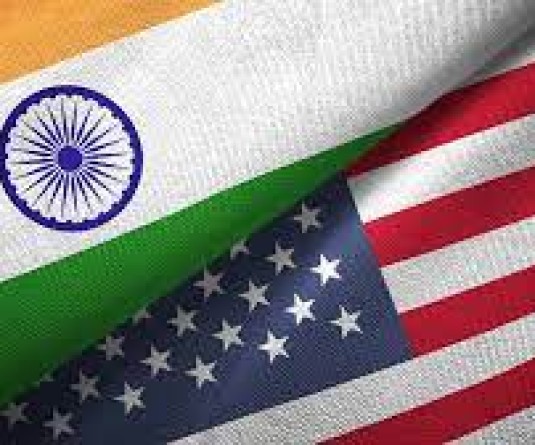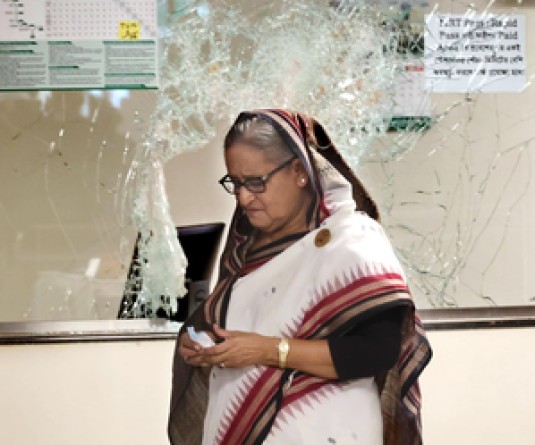
A child holds up a poster as demonstrators stage a protest against Libyan leader Moammar Gadhafi demanding an end to the violence in Libya, in Valletta, Malta on Saturday, February 26. (AP Photo)
WASHINGTON, February 26 (Reuters): The United States imposed sanctions on the Libyan government on Friday and said the legitimacy of longtime Libyan leader Muammar Gaddafi had been "reduced to zero."
In response to Gaddafi's bloody crackdown on an uprising against his 41-year rule, President Barack Obama signed an executive order freezing the assets of Gaddafi, his family and top officials, as well as the Libyan government, the country's central bank and sovereign wealth funds.
"These sanctions therefore target the Gaddafi government, while protecting the assets that belong to the people of Libya," Obama said in a statement. "By any measure, Muammar Gaddafi's government has violated international norms and common decency and must be held accountable," he added.
The U.S. Treasury said the action would block substantial sums of Libyan money and prevent it being looted by the Gaddafi government, but declined to offer a dollar value.
With the Libyan crisis also being taken up at the United Nations, European Union governments agreed on the idea of imposing an arms embargo, asset freezes and a travel ban on the oil-producing North African nation, with diplomats saying a formal decision would be taken early next week.
Washington announced the sanctions move -- along with the closing of its embassy and withdrawal of U.S. diplomats -- after a chartered ferry and a plane carrying Americans and other evacuees left Libya earlier on Friday.
The Obama administration had been criticized for its relatively restrained response so far to the turmoil. But U.S. officials said fears for the safety of the Americans had tempered Washington's response.
"(Gaddafi) is overseeing the brutal treatment of his people ... and his legitimacy has been reduced to zero in the eyes of his people," White House spokesman Jay Carney said after Libyan security forces shot protesters in the streets of Tripoli on Friday. Obama discussed Washington's sanctions plan with the leaders of Britain, France and Italy on Thursday and Turkish Prime Minister Tayyip Erdogan on Friday.
Canadian Prime Minister Stephen Harper said on Friday his government was preparing sanctions against Libya and that "Canada fully supports the United Nations Security Council on a resolution that could include a weapons embargo, individual sanctions against key Libyan officials and an asset freeze."
CLINTON TO DRUM
UP SUPPORT
The Obama administration said earlier this week it was studying a wide range of options, including the freezing of assets, a travel ban on members of Gaddafi's government, a "no-fly" zone over Libya and military action.
In a first step, the U.S. Treasury has told American banks to closely monitor transactions that may be related to unrest in Libya for possible signs that state assets were being misappropriated.
Several U.S. energy companies in Libya -- including Marathon, Hess and Occidental -- have continued working through the crisis as other foreign firms have curtailed or suspended operations. If sanctions gain traction internationally, Libya's oil output could be restricted.
"Although Libya is not a big supplier to the U.S., any sanctions imposed by the U.S. -- particularly on doing business with that country -- means the U.S. or other countries affected will still have to tap other suppliers," said Peter Beutel, president of trading consultants Cameron Hanover.
In New York, the U.N. Security Council was considering a French-British draft proposal for an arms embargo, financial sanctions and a request to the International Criminal Court to indict Libyan leaders for crimes against humanity.
The White House did not express direct support for the proposal but said it was discussing it with members of the Security Council, including the other four permanent members -- China, Russia, Britain and France. Secretary of State Hillary Clinton will push for unity against Gaddafi on Monday at the U.N. Human Rights Council.
The United States resumed diplomatic ties with Libya in 2004 after Gaddafi agreed to abandon his pursuit of weapons of mass destruction. U.S. economic sanctions were progressively removed after Libya agreed to accept civil responsibility for the bombing of Pan Am Flight 103 over Scotland in 1988.
Iraqis rally in “Day of Rage,” with 10 dead, scores hurt
BAGHDAD, February 26 (Reuters): Thousands of Iraqis inspired by uprisings around the Arab world protested on Friday against corruption and poor basic services in nationwide rallies where at least 10 people died in clashes with security forces.
Scores of others were hurt in skirmishes during Iraq's "Day of Rage" when demonstrators tried to storm government buildings and security personnel fired shots to try to disperse them. There were no reports of insurgent attacks against the protests despite Prime Minister Nuri al-Maliki's warning that al Qaeda militants and others might try to disrupt the rallies.
Maliki vowed not to ignore the protesters' demands. "I would like to assure all our people that nothing which they have protested against due to their discontent will go in vain," he said in a statement. "I will follow up personally the implementation of all issues under my authority as prime minister."
The most violent clashes between protesters and security forces occurred in the restive areas of Hawija and Mosul in the north and the southern oil hub of Basra. Eight years after the U.S.-led invasion which ousted Sunni dictator Saddam Hussein, development remains slow and Iraqis complain of shortages of food rations, water, power and jobs.
The Arab world has erupted in protests aimed at ousting long-standing rulers and holding free elections but Iraqis have focused more on gripes over essential needs and corruption.
"We are here for change, to improve the situation of the country. The education system is bad. The health system is also bad. Services are going from bad to worse," said 27-year-old Lina Ali, part of a protest youth group on Facebook. "There is no drinkable water, no electricity. Unemployment is growing, which can push the youth toward terrorist activities," she said at Baghdad's Tahrir Square.
Frustration has mounted in the war-torn state, which has vast oil reserves and the potential to be a major producer. "Where's my share in the oil profits?" one banner read. "People are hungry. We ask the government to find job opportunities for the young," said 52-year-old Um Safa, who walked from Baghdad's northeastern Sadr City slum to Tahrir Square to take part in the protests.
In Mosul, guards and security forces opened fire when protesters tried to storm the local government building, a Reuters witness said. Three people were killed and 15 wounded in the clashes. Demonstrators set fire to the building and a percussion bomb exploded amongst the crowd, a police source said.






